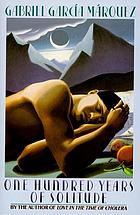Recommendations from Michael Schaub on what to read this summer.
War, recession, environmental disaster — unless you have a superhuman ability to withstand bad news, you’re probably looking for a way to escape this summer. I’ve been indulging my own escapist urge in two ways: The first involves pretending it’s already next year, when all countries in the world will sign a peace treaty after scientists discover a way to harvest the energy from kitten smiles.









